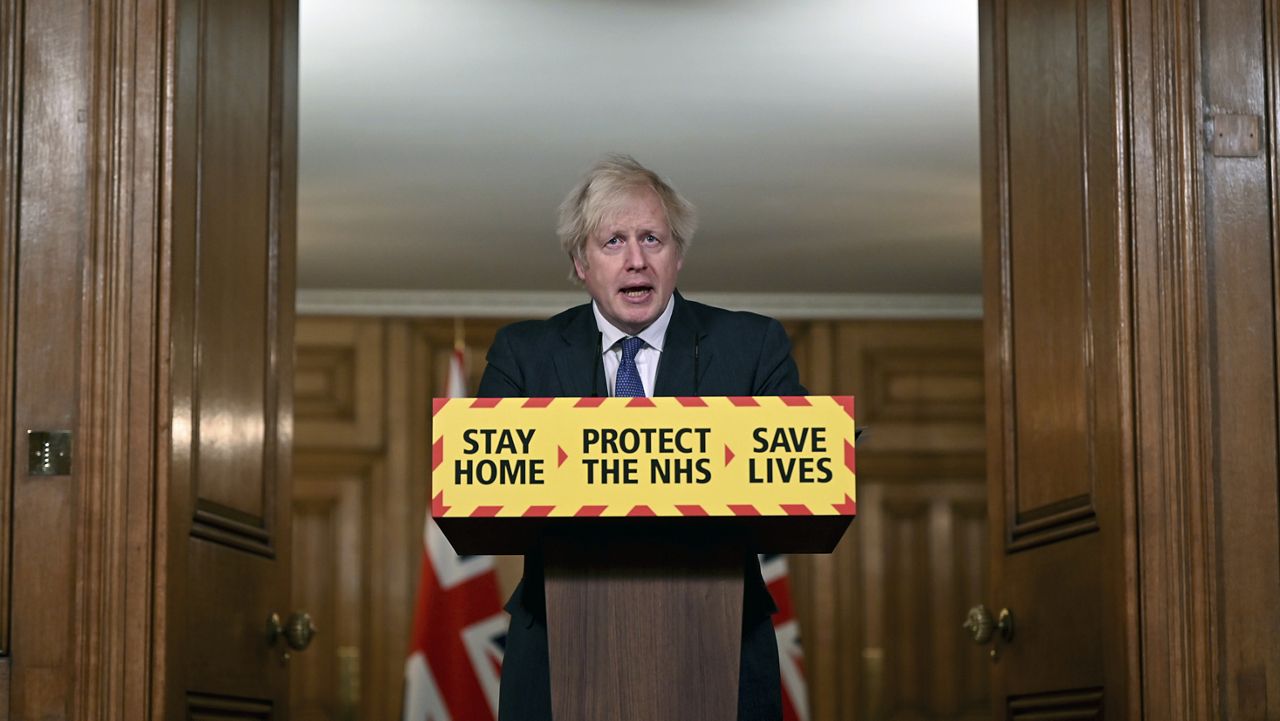At a news conference Friday, British Prime Minister Boris Johnson said that there is "some evidence" the variant of the coronavirus first detected in the United Kingdom "may be associated with a higher degree of mortality."
The evidence about the variant, known as B.1.1.7, is still preliminary, and is being studied by the UK's New and Emerging Respiratory Virus Threats Advisory Group.
“We’ve been informed today that in addition to spreading more quickly, it also now appears that there is some evidence that the new variant — the variant that was first discovered in London and the southeast — may be associated with a higher degree of mortality,” Johnson said, before adding that there is also evidence that the vaccines from Pfizer-BioNTech and AstraZeneca-Oxford University are effective against the variant.
Sir Patrick Vallance, the Chief Scientific Adviser to the British government, gave this example: "A man in their 60s, the average risk is that for 1,000 people who got infected, roughly 10 would be expected to unfortunately die with the virus. With the new variant, for 1,000 people infected roughly 13 or 14 people might be expected to die."
Vallance added that the data is not yet strong, and that "individuals who have been infected previously and have generated antibodies appear to be equally protected against the original virus and the new variant."
The variant has been discovered in over 40 countries, including the United States.



